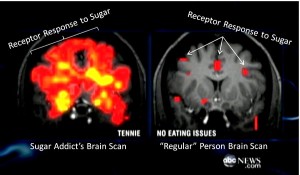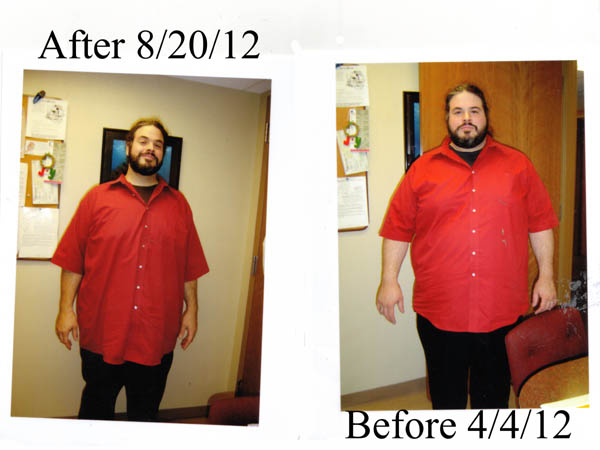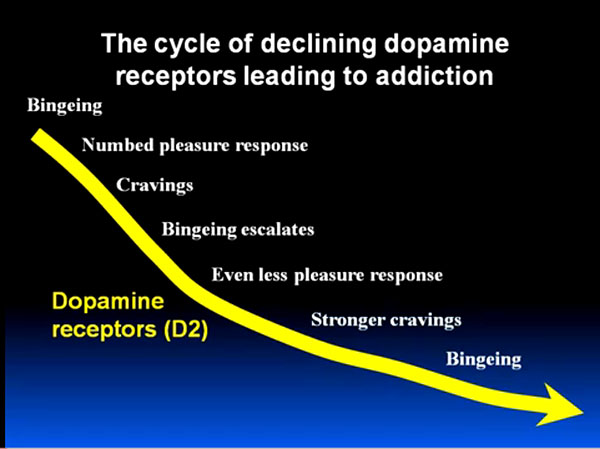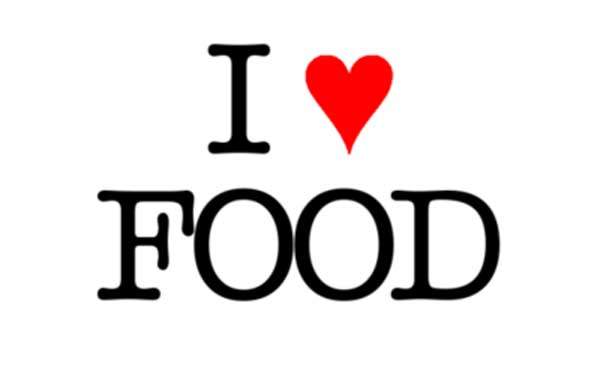You Are What You Don’t Eat
Yes, those are my before and after pictures. 100 pounds in about 4.5 months. Proud? Heck yeah, I’m proud. I always go back to the fact that it was the program. I really just followed the program. Sure, it took willpower, but the blueprint was right there.
While my attitude is a humble one, it can cause conflict. Old friends stop me at places like Wal-Mart to tell me how great they think I look and how I’m inspiring them. I’m always flattered and grateful for the encouragement but mostly I point back to the program. Then, the kind and awesome person points back to me. I usually leave the topic with, “The only person I’m trying to inspire is me, but if my example makes you go ‘Man, Keith was bad off—if he can do it, I sure can!’ then go for it, because I’m nothing special and you can do anything that I can.”
I mean it, too. I was such a food idiot, a food failure for years. Years. I love food, but I used to let it rule me. I’m not done losing weight, but it’s not about weight. It stopped being about the number on the scale a few months back. It became about the lousy feeling you get when you know, in your ever-expanding gut, that you are ruled by something. Food, drugs, porn, gambling, Reality TV, whatever.
I hope everyone I know loses the weight they seek. More importantly, I hope that they find the freedom, the confidence and the feeling of being your own super hero that comes from mastering your love of food and turning it into a love of self.
My Findings
“I’ve got nowhere to go, just movin’ on my feet
People say I’ve got no ambition
At least I give a sh*t about the stuff I eat
Yeah! I care about nutrition.”
-The Dead Milkmen, Nutrition
 The dichotomy between love of self and love of food, and its corresponding damage to self esteem is the fuel for today’s article. There are not many studies of the pattern, but the pattern itself is written between the lines of any weight loss article. “Get fit, lose weight—feel great!” or “Nothing tastes as good as looking good feels.” In our visual society, the message appears to be that “When I look good, I’ll feel good.”
The dichotomy between love of self and love of food, and its corresponding damage to self esteem is the fuel for today’s article. There are not many studies of the pattern, but the pattern itself is written between the lines of any weight loss article. “Get fit, lose weight—feel great!” or “Nothing tastes as good as looking good feels.” In our visual society, the message appears to be that “When I look good, I’ll feel good.”
Yes, I like how I look. But, I’m human, so I still see all the little flaws and bulges. My confidence does not come from my looks and I hope it never does. My confidence and my fervor comes from a rekindled love affair with food and with myself.
Here’s how it happened. In between month one and two, after I’d gotten over my own foolishness with regard to eating and exercise, I began to notice a pattern. The more I made a healthy food switch (substituted an unhealthy food with a healthier version) or the higher my physical activity minutes went, the better I felt about me. I was still a fat guy. I’m still a fat guy. But I feel great and strong about me and my abilities.
That attitude began to transfer into other spheres of living. It was never “If I could lose 100 pounds, then I can tackle this project at work” because the program helped me lose 100 pounds. But I do say “If I can love switching corn nuts to oven roasted chick peas” or “If I can love switching ice cream for frozen sugar free pudding and diet shake mixes” then I can do anything.
Ultimately, I learned that I had allowed my love of food to become unbalanced, and as I consumed more, it consumed me. I had convinced myself, by allowing my compulsion to be my master, that I was mentally weaker than a cheeseburger and not physically strong either. But, the more I balanced that consumption, the stronger I felt.
Their Findings
“Over the last few days I’ve realized that if it’s in the kitchen, I will eat it.
Additionally, during a binge, I treat my body as if it were a garbage can.”
-Anonymous SparkPerson
Of course, I began searching for peer reviewed documentation of this pattern. The evidence is actually part of a growing field of research, so there’s not much easily found. Interestingly, there’s even some identity crises in how to define self esteem. One interesting University of Texas graduate study quoted the USDA’s 2005 report that “Self-esteem is an important factor in measuring an individual’s overall psychological well-being” and noted that they believed good nutrition and…”physical activity appears to promote psychological well-being and reduces feelings of mild to moderate depression and anxiety.” (Fielder, 2008) That seems to indicate that self esteem is built internally. However a Livestrong.com article stated that “Self-esteem is developed through relationships with significant people in your life and through the accolades you receive in your achievements.” (Morris, 2011). The answer is that they’re both right. Our discussion of self esteem encompasses both the internal and external sources. After all, I may be feeling strong because of my food choices, but the friend who stopped me in the parking lot to share encouragement did a lot, too. If I were to add anything to the internal vs. external source conversation it would be that I believe internal sources of self esteem are more constant and sustaining, while external are sudden bursts of esteem, but their impact can fade.
Morris’s article offers a good view of the flip-side of this self esteem battle; the slave to food. A person that I had been, and to some degree will always be; a food addict.
“Food addictions and compulsive overeating are uncontrollable cravings for an excess amount of food that often follows eating refined carbohydrates,” Morris reports. “These uncontrollable cravings lead to deterioration in physical, emotional, social and spiritual life. Individuals who are addicted to food often cannot control their intake…and they often have feelings of depression, hopelessness or sadness about their weight.” Was I—am I a food addict? I don’t know if I’ve fully made up my mind, but I can say “Yep” to all of those qualities with regard to eating, even though I was a generally happy guy. “Sometimes patients will find themselves eating when they’re upset or using food as a reward,” Morris says. Also, “Yep.”
 Morris used information from doctor and author Mark Hyman who “points out the similarities between addiction to high sugar, high energy processed foods and the addiction to recreational drugs such as cocaine, heroin and nicotine.” He said that high fat and/or sugar foods “stimulate the brain’s reward center exactly like…heroin or opium.” Addiction occurs when repeated indulgence in these foods forces the brain to compensate for the addict’s dopamine overload by decreasing the “number of dopamine receptors in their brain, which makes them more likely to crave things to increase the dopamine, such as processed sugar.” (Morris, 2011)
Morris used information from doctor and author Mark Hyman who “points out the similarities between addiction to high sugar, high energy processed foods and the addiction to recreational drugs such as cocaine, heroin and nicotine.” He said that high fat and/or sugar foods “stimulate the brain’s reward center exactly like…heroin or opium.” Addiction occurs when repeated indulgence in these foods forces the brain to compensate for the addict’s dopamine overload by decreasing the “number of dopamine receptors in their brain, which makes them more likely to crave things to increase the dopamine, such as processed sugar.” (Morris, 2011)
Please check out the photos in this section for more information. It’s chilly to think about that happening to my brain. I only know that it did happen. One of my first statements to my wife, in jest, had been “well, I need to find new sources of dopamine.” I only now know that I was being deadly serious. Interestingly, for those sources of dopamine I stopped eating things and started doing things.
Fielder’s study found that “Self-esteem was positively correlated with overall nutrition and physical activity knowledge, healthy eating behaviors, and healthy exercise behaviors,” but that’s really no surprise. We all know the guy who exercises in front of his mirror. But, it also found that increased self-esteem found in the choice to improve “fitness and health and the food choice” but not in “the food choice motives of mood, familiarity, and ethical concern.” Which means that Fiedler found that her study group was more apt to get that self esteem boost from making food choices which they felt were healthier for them, not choices based on what food will sooth their mood, are the easiest at the time or purely because they ethically thought it was a “better” food—like vegetarian, organic or vegan diets. (No offense guys).
As for the looking good vs. feeling good issue; “These results match my prediction” Fielder says in the discussion section of the study, “that those individuals who have a higher self-esteem will report having exercise motives that are based on health and/or fitness reasons and not for reasons such as attractiveness.”
The choice I made is clear looking back. Take back my mouth. Take back my dopamine. Take back my life and my self esteem. The weight was the symptom, the byproduct. But I am so glad it’s gone.
Your Findings
“We’re gonna eat a dolphin, Steve!”
-Doug Four, Multiplicity
Yes, I wouldn’t be me if I didn’t end this with an exhortation. But, seriously! I feel like a superhero because I will power walk a 5 K or go swimming again. That’s a personal thing. I am no superhero. I am just another American consumer eating his way through life and letting my love get marketed into my addiction. I was an idiot and still am in many, many ways. YOU can do this too. Look! Fielder found that “overall nutritional and physical activity knowledge was positively correlated to healthy eating behaviors” so that means once you know it you have the ability to do it.
But how? Self improvement must start slow and gain momentum to be lastingly effective. You can join a program like I did, if you want. Email me. Barring that, I suggest right now, today, you get Googling.
Pick a food that you know is unhealthy and find a healthier version of that thing to switch it with. Don’t pick your favorite thing. Keep that one for now. Find your food’s nutritional content then keep Googling until you find—or find a way to make—something else that you know is nutritionally healthier. Be very, very proud of yourself every time that you make the switch. Maintain it until it becomes part of your life, then pick something else. This will give you your internal self esteem boost.
An external self esteem boost is less complicated but more difficult to achieve. You will need to tell someone you’re doing this. Call mom. Let your spouse know. Post it to the interweb, heck, put it in the comment box below. But do it. State your commitment to someone, then let them know when you do what you have committed to do. It will work, people love to cheer others on. That’s how this stuff spreads.
I leave you with this thought: If you like what you eat, do you like that you eat it? If you can’t answer “yes” to both, maybe you’re a lot like me.
__________________________________________________
Fielder, Chelsea R. (2008) Knowledge, Motivations, and Behaviors Regarding Eating a Healthy Diet and Physical Activity in Relation to Self-Esteem in College Students Texas State University-San Marcos. (Master’s Thesis) Retrieved from Texas State University database. Supervising Professors: Dr. Shirley Ogletree Department of Psychology & Dr. Heather C. Galloway Director, University Honors Program https://digital.library.txstate.edu/bitstream/handle/10877/3213/fulltext.pdf
Morris , Gail (2011, Jan 26) Self Esteem and Food Addiction. Livestrong.com http://www.livestrong.com/article/366872-self-esteem-food-addiction/



